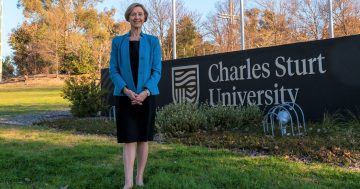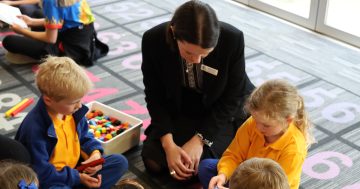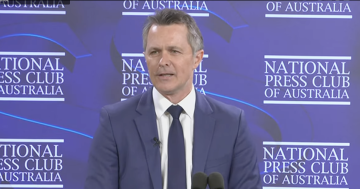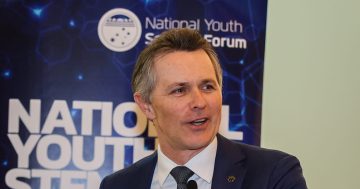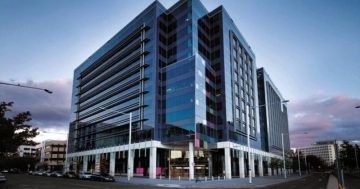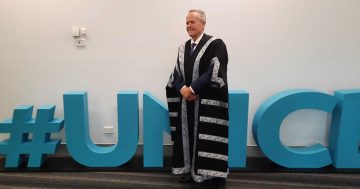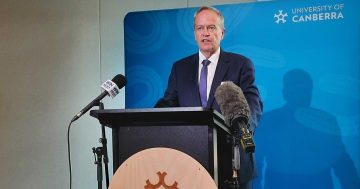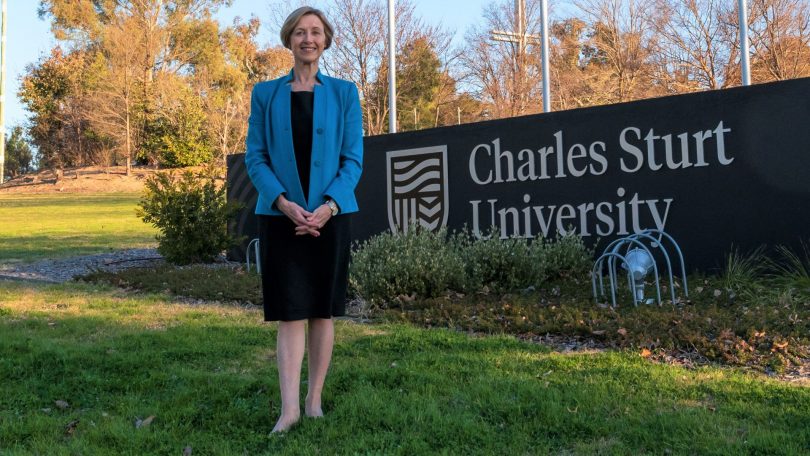
Vice-Chancellor Renée Leon: “There’s a gap in the policy landscape.” Photo: CSU
Australia needs a higher education policy reset to set it up for the future and be ready to meet the next crisis the country faces, according to one of the nation’s most distinguished public servants and newest university leaders.
Charles Sturt University Vice-Chancellor Renée Leon, a former secretary of two federal departments, called for a fresh, whole-of-sector look at higher education, including vocational education, and gave a frank assessment of the current government approach as part of a one-on-one interview with Region Media for a Public Sector profile.
Professor Leon said there needed to be a long-term and hopefully bipartisan approach to clarify the sector’s goals and how they should be achieved.
She said it was crucial that the question of how research and infrastructure is to be funded be tackled in a long-term, strategic way instead of “making incremental and piecemeal decisions about bits of higher education one by one”.
Central to this is the place of international students, which universities have relied on for revenue as public funding declined, Professor Leon said.
“There’s a gap in the policy landscape about what actually is our commitment as a nation and how do we think research ought to be conceived and funded,” she said.
“It’s been a while since there has been that kind of whole-of-sector think about higher education. What goals do we want it to achieve? Is there a community consensus and hopefully a bipartisan consensus about the approach we should take? It’s not the kind of policy you can switch on and switch off every three years.
“These are long-term investments in things like funding arrangements, the infrastructure, the regulatory arrangements, how many universities you have and how they should be set up and what they should teach. These are long-term commitments. You can’t just change them every couple of years.”
Professor Leon said the current approach to research funding created a shortfall that universities have had to bridge by turning to increased enrolments of fee-paying international students, a revenue source that the pandemic has shown to be unreliable.
The cross-subsidisation from domestic student revenue would also come under pressure from the Federal Government’s Job-ready Graduates Package.
“There is a fundamental question for Australia about how [government] want[s] to fund research going forward and if they want to fund it in a way that will enable the nation to continue to grow its knowledge and be able to face the next crisis, whether it’s a pandemic or something else.”
Professor Leon said that in times of great crisis, the nation looked to deep experts who have already worked out what to do, “because it’s too late then to decide to go and invent MRNA [vaccines]”, she said.
Professor Leon questioned whether Australia could rely on the international student pipeline forever, and if not, what were the alternatives.
The issue is particularly pertinent to Charles Sturt, which is winding back its international student component. Almost all are based in high-rise city campuses in Sydney, Melbourne and Brisbane as part of outsourced courses that escaped proper oversight.
Charles Sturt is now going back to its roots to refocus on its regional campuses and any remaining international students will be based in Bathurst, Wagga Wagga and Orange.
Professor Leon said regional universities were crucial to providing the skills and workforce the regions needed to thrive.
“Part of what limits the life and work opportunities of young people who grow up in regional areas or people who are already at work in regional areas and want to grow their qualifications is that they often don’t want to leave the regions and go and live in a city,” she said.
“And so if you don’t make education available in the regions then you really mean that all of those people who live in the vast footprint of Australia don’t get access to the same life opportunities as those who happen to be born in Sydney or Melbourne.”
Professor Leon was appointed last August and is about to move from Canberra to Bathurst for the return of face-to-face teaching on campus.












